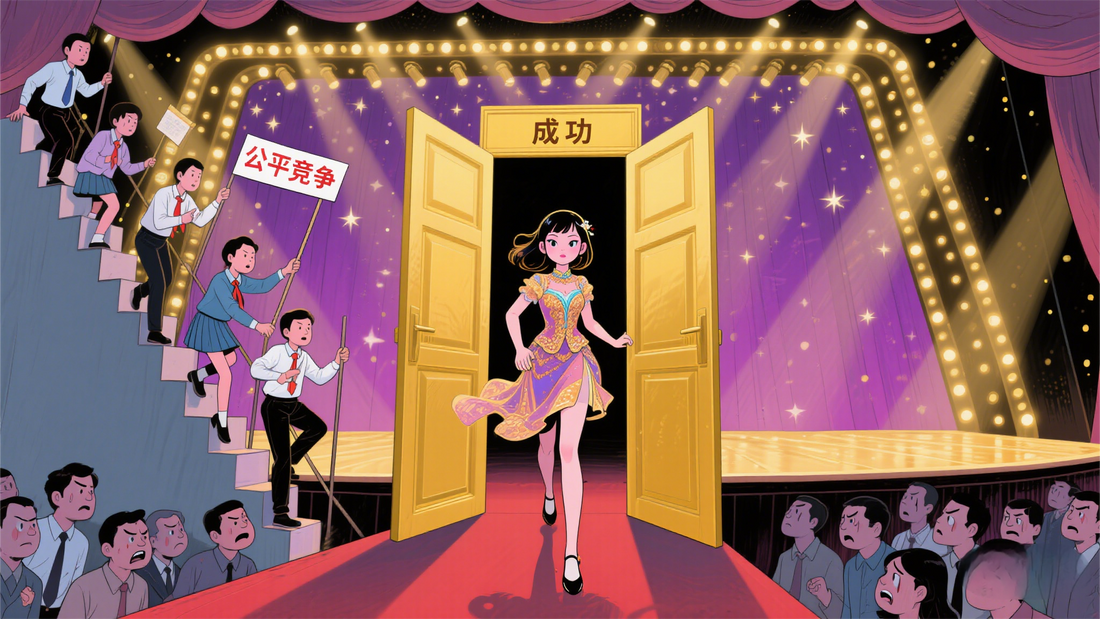
Why Are Chinese People So Obsessed with Fairness?
Share
Introduction
In China, the concept of fairness is a big deal—sometimes to the point of obsession. Many Chinese people crave absolute fairness in every aspect of life, which might seem surprising or even unreasonable to some international observers. So, why is fairness such a hot topic in China? In this article, we’ll explore the cultural and societal reasons behind this mindset, using recent events as examples, and reflect on whether this pursuit of fairness is universal or uniquely Chinese.
The Outrage Over Privilege: Real-Life Examples
Recently, three high-profile cases in China sparked massive online debates about fairness.
First, a doctor at Beijing’s prestigious Xiehe Hospital was exposed for having extramarital affairs. Digging deeper, netizens discovered that one of his partners, dubbed “Miss Dong,” had risen to a high position in the hospital despite not having a medical background. It turned out her parents were influential figures in the medical system, giving her access to opportunities unavailable to others. Chinese netizens were furious, arguing that it’s unfair for children of privileged families to compete with those from ordinary backgrounds who lack such connections.
The second case involves Huang Lei, a famous Chinese actor, and his daughter, Huang Duoduo. Huang gained fame through shows like Where Are We Going, Dad?, where his daughter also became a beloved figure. Recently, news broke that Duoduo, still young and inexperienced, landed a role in a major film alongside top stars like Wang Yibo and a renowned director. Many felt this was unjust—why should she get such a big break without the years of struggle that most actors endure? For example, even stars like Wang Yibo had to work their way up through auditions and small roles over years. The sentiment online was clear: privilege shouldn’t guarantee success.
A third example involves a well-known children’s TV host, “Auntie Golden Beetle” (Jin Guizi), who was a household name in the ‘90s. Recently, her daughter started live-streaming to sell products, prompting accusations that she was “leeching off” her mother’s fame. Her response—“Of course I’ll use my mom’s popularity, and my kids can use mine too!”—further angered netizens. For many Chinese, this “borrowing” of influence feels deeply unfair, especially for those without famous parents to rely on.
Why Fairness Matters So Much in China
These cases highlight a broader cultural phenomenon: the Chinese obsession with fairness. Historically, China has been a society that values meritocracy, dating back to the imperial exam system, which allowed ordinary people to rise through education. However, modern China often feels like a different story. The internet has exposed hidden inequalities, tearing away the “veil” that once obscured privilege. Small incidents can go viral, amplifying public outrage and leading to calls for accountability.
This emphasis on fairness is also tied to China’s political history. Since the Communist Party came to power, its ideology has centered on equality—overthrowing wealthy landlords and capitalists to give the common people a fair shot. Policies like Deng Xiaoping’s “let some get rich first, then help others catch up” aimed to balance development, with wealthier regions like Shanghai transferring funds to poorer provinces. This governance model has fostered a societal expectation of fairness, deeply ingrained in the Chinese psyche.
The Reality of Inequality: Big Cities vs. Small Towns
Despite this ideal, fairness isn’t always achievable. In big cities like Beijing, opportunities feel more merit-based, but in smaller towns, resources are often controlled by a few influential families. These families pass down their advantages—whether it’s connections, wealth, or opportunities—to their children. In such places, people tend to accept this as “normal,” especially in a “relationship-based” society where personal networks (guanxi) play a big role. Everyone knows each other, and benefits are shared within these networks, creating a sense of local fairness even if it’s not universal.
For example, a friend living in Beijing returned to his hometown—a small county—and noticed that classmates who were doing well (higher income, easier jobs) often came from families with resources or connections. In these smaller communities, such disparities are often seen as inevitable and accepted.
A Parent’s Perspective: The Desire to Help
As a father, I can understand the impulse to help my child. If I have the means, I’d want to give my son a leg up, making his life easier. This instinct is universal—parents everywhere want the best for their kids. But in China, this desire clashes with the public’s demand for fairness. When privilege is too obvious, it triggers resentment, especially among those who feel they’ll never have the same opportunities.
Fairness Around the World: A Chinese Quirk?
I’m curious how international readers view this. In many countries, wealthy or influential families—like the Kennedys in the U.S. or the Ambanis in India—also pass down advantages to their children. Do you feel the same sense of unfairness, or is it more accepted as a fact of life? In China, the reaction is often intense, perhaps because of the cultural and political emphasis on equality. The internet amplifies this, turning individual cases into national debates.
The Role of Public Sentiment
Chinese netizens can be a powerful force. While their reactions aren’t always rational, they serve as a form of social oversight. Celebrities caught in scandals often face public shaming, with online criticism forcing apologies or changes. This moral high ground reflects China’s deep-rooted values around justice and fairness, shaped by both historical ethics and modern governance.
Conclusion
The Chinese obsession with fairness stems from a mix of cultural history, political ideology, and modern challenges. While absolute fairness may be impossible, the pursuit of it shapes societal debates and drives change. What do you think—how does your culture view fairness, and do you see similar tensions?
Want to explore more Chinese cultural insights? Join my newsletter for weekly Chinese idioms and audio, or sign up for my small-group classes here to dive deeper into topics like this through language and real-life stories!
